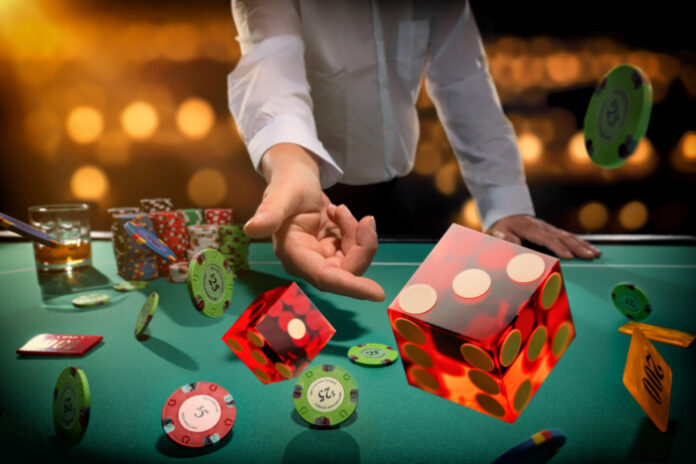Gambling is a pastime that is several millennia old. It is an entertainment form that appeals to human nature because it offers something of value with not much work involved, only a stake and an accurate prediction. Of course, the primary reason why most people bet on events with uncertain outcomes is to win monetary prizes. However, some engage in this activity for the excitement it can generate, the social interactivity it provides, and as a distraction from everyday problems, as a device to escape stress and negative emotions. Hence, a wide range of motivations why someone chooses to gamble exist, particularly at casinos, where the odds always get stacked against players.
As we know them today, casinos were initially established in Venice, Italy, in the 17th century. The first such venue was the Ridotto, which closed its doors in 1774 after concerns flooded Italy regarding the social issues gambling as a popular pastime may bring to the country. Today, this is a manageable problem. That is so because the gaming industry has put various responsible wagering measures in place that stop individuals from overindulging in this hobby.
Know that the psychology of gambling is complex, and it cannot get encompassed in one one-thousand-word article. Nevertheless, in what follows, we attempt to cover several main points regarding the cognitive biases, environmental influence, and personality traits affecting those who choose to enjoy gaming products regularly, factoring in that most have decided to gamble at a list of instant paying casinos with fast withdrawal programs, instead of premium land-based locales, on account of the convenience gaming websites offer.
The “Winning” Feeling
Dopamine is the neurotransmitter synonymous with pleasure, often called the reward chemical, triggered when the brain decides it is experiencing something that it evaluates as pleasurable. That can be something like receiving a compliment or winning a game. Both can cause feelings of satisfaction and happiness that stem from dopamine.
Thus, when people win at casino games, they get a chemically-induced positive boost that ups their mood. In addition to dopamine, the brain releases serotonin and norepinephrine in these scenarios, contributing to excitement and arousal. Over time, a person’s mind can get conditioned to link gambling with a type of pleasure, magnitude-wise, that cannot get achieved otherwise, and that often causes addiction to this activity.
The Role of Randomness
It is paramount to note that all casino gambling is entirely chance-based. Unlike in poker, where an element of skill exists, in casino products, each game round is 100% random, determined by chance. That means no strategy can guarantee a win, and no one can implement expertise in these gambling options. Everyone has an equal opportunity to win, regardless of their experience level, and they can go on losing streaks equally as likely.
In slots and other software-powered gaming picks, the element of randomness gets facilitated through algorithms called random number generators, whose job is to create sequences of arbitrary figures, one after the next, that the game software translates into round outcomes.
Everyone needs to understand that there is nothing anyone can do in single rounds that will tip the odds in their favor at any casino game. That cannot occur because these products have yet been designed with such a possibility.
The Illusion of Control
Here we have a cognitive bias that can influence decision-making. In a gaming connotation, it usually refers to the notion that someone has more control over a given situation than what they do. For example, many people believe that they have lucky numbers, which, if played, boost their odds of grabbing a win. Or, if they perform a specific ritual, adhering to that superstition will increase their reward-snagging chance.
These biases spread to the use of various wagering patterns and tactics, which lead to a sense of overconfidence that can have dire consequences, as to reiterate once more, in casino games, chance always has the final say.
The Gambler’s Fallacy
The gambler’s fallacy is probably the most famous gambling-related cognitive bias ever. It has led to millions losing money on gaming floors and online. In short, this is a false belief that previous results affect future ones. For instance, a player may think that his odds of beating a live dealer at blackjack games jump after suffering three losing hands in a row when they are the same as if this player had won five rounds.
The most renowned illustration of how the gambler’s fallacy works is via a coin toss. In each, a fifty-fifty chance is in play that the coin will land on either side. But, if it falls, let us say, seven times in a row on heads, most people will think that on the following toss, the probability of it falling on the tails side is better than the coin landing on heads again. That is because they fail to account that each toss is independent and has no relationship to past outcomes. Instead, they only factor in the probability of a coin toss landing multiple times in a row on one side against it not doing this. So, not realizing that the independent round reality unavoidably causes many to fall into the trap that is the gambler’s fallacy.
The Near-Miss Effect
When someone perceives a partial success or a close call as a sign that they are close to winning, this psychological phenomenon bears the name – of the near-miss effect. One study concluded that the visual aspect of a near-miss exploits our natural learning process, making us think that we are getting close to a win. Yet, in casino gaming, this logic does not apply due to the chance-based nature of this activity.
Research also shows that near-misses influence motivations and excitement when gambling since they activate the same reward centers as wins.
In regards to a psychology of winning, one casino option is to search for a Canadian live casino, and then review the website to see what features it offers.
Parting Thought
It is crucial for everyone who gambles to understand the connection between risk and reward and not fall prey to their cognitive biases and gaming ole wives’ tales. Anyone partaking in real money wagering should do so responsibly and be mindful of the hazards connected to this entertainment form.
Find a Home-Based Business to Start-Up >>> Hundreds of Business Listings.

















































